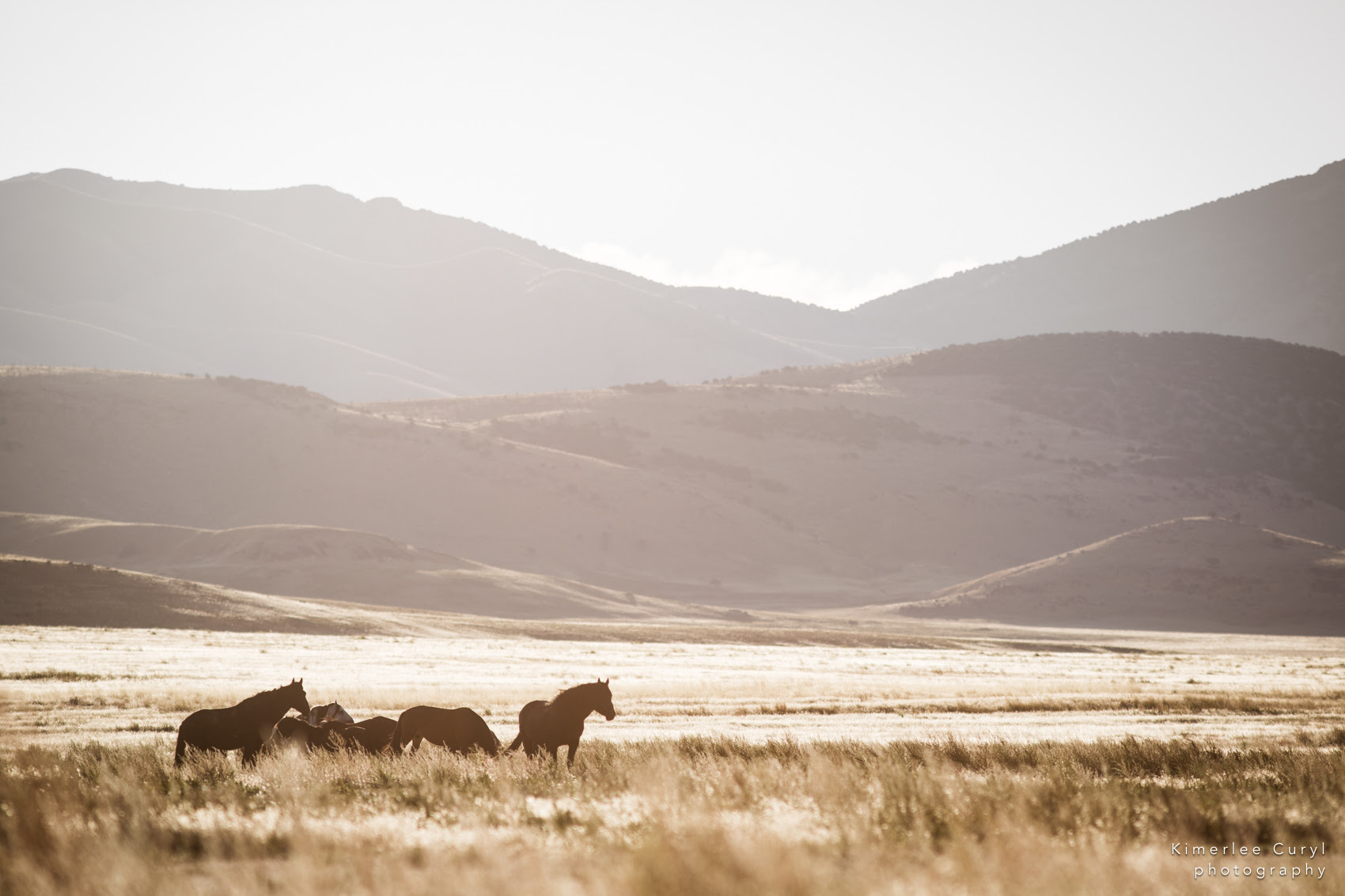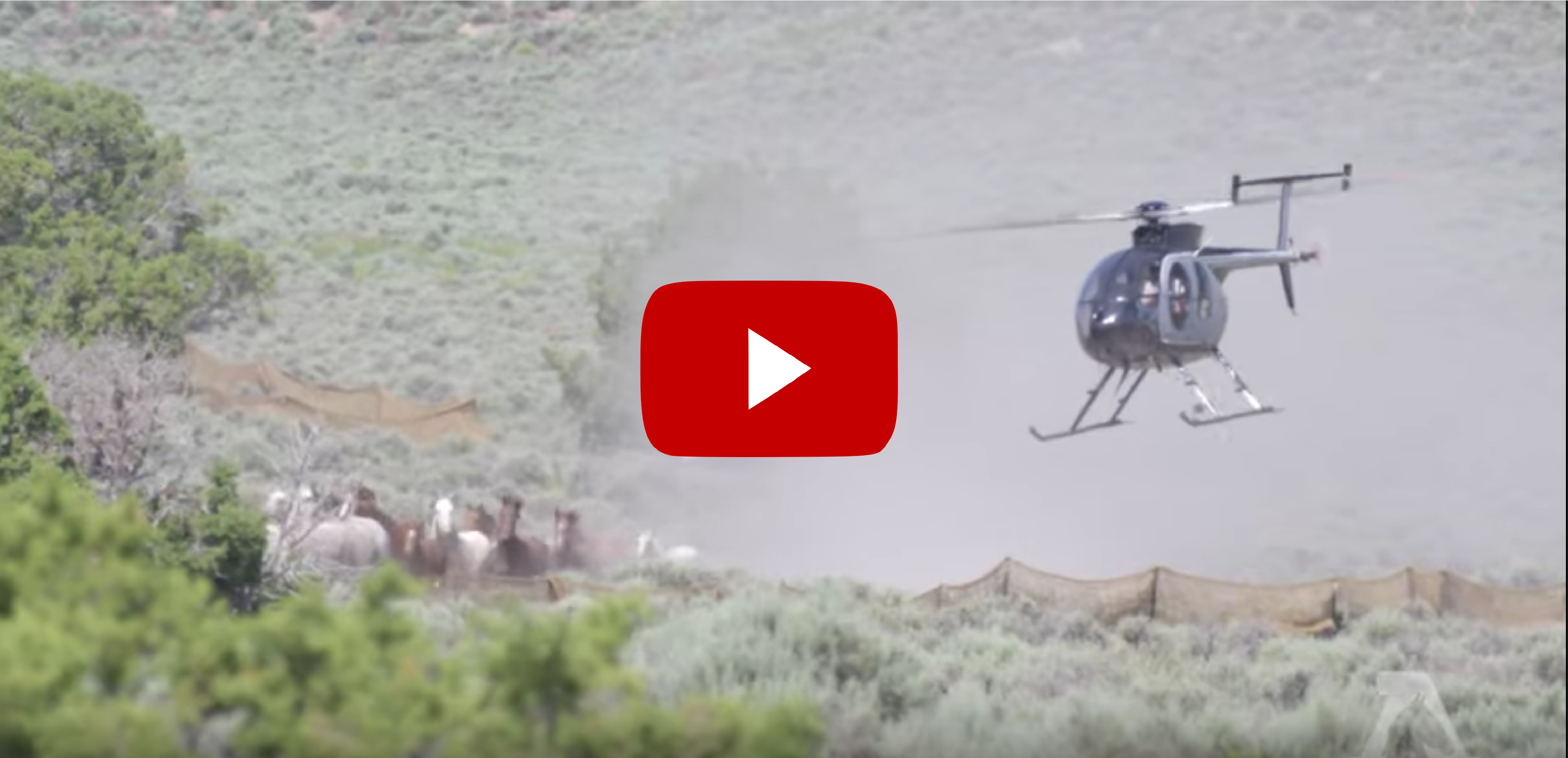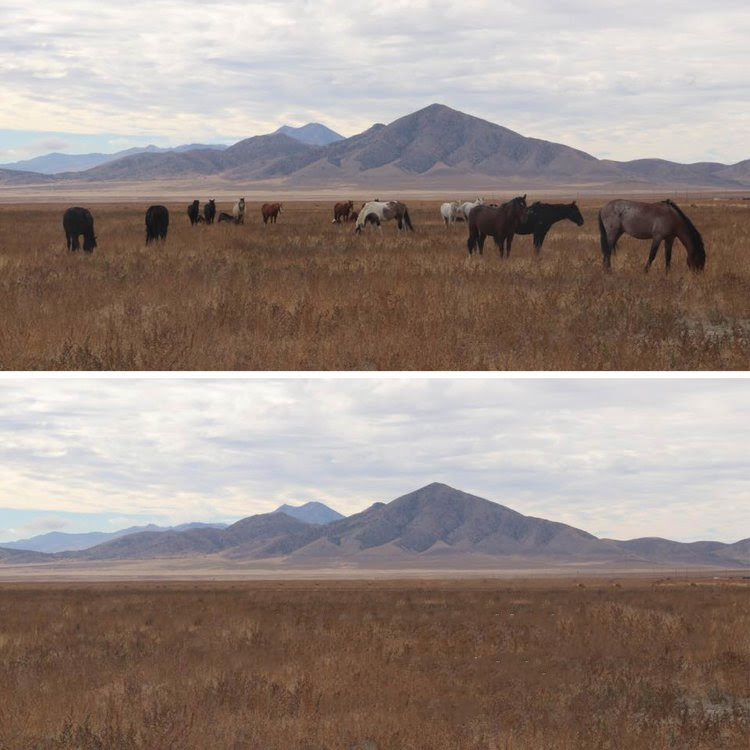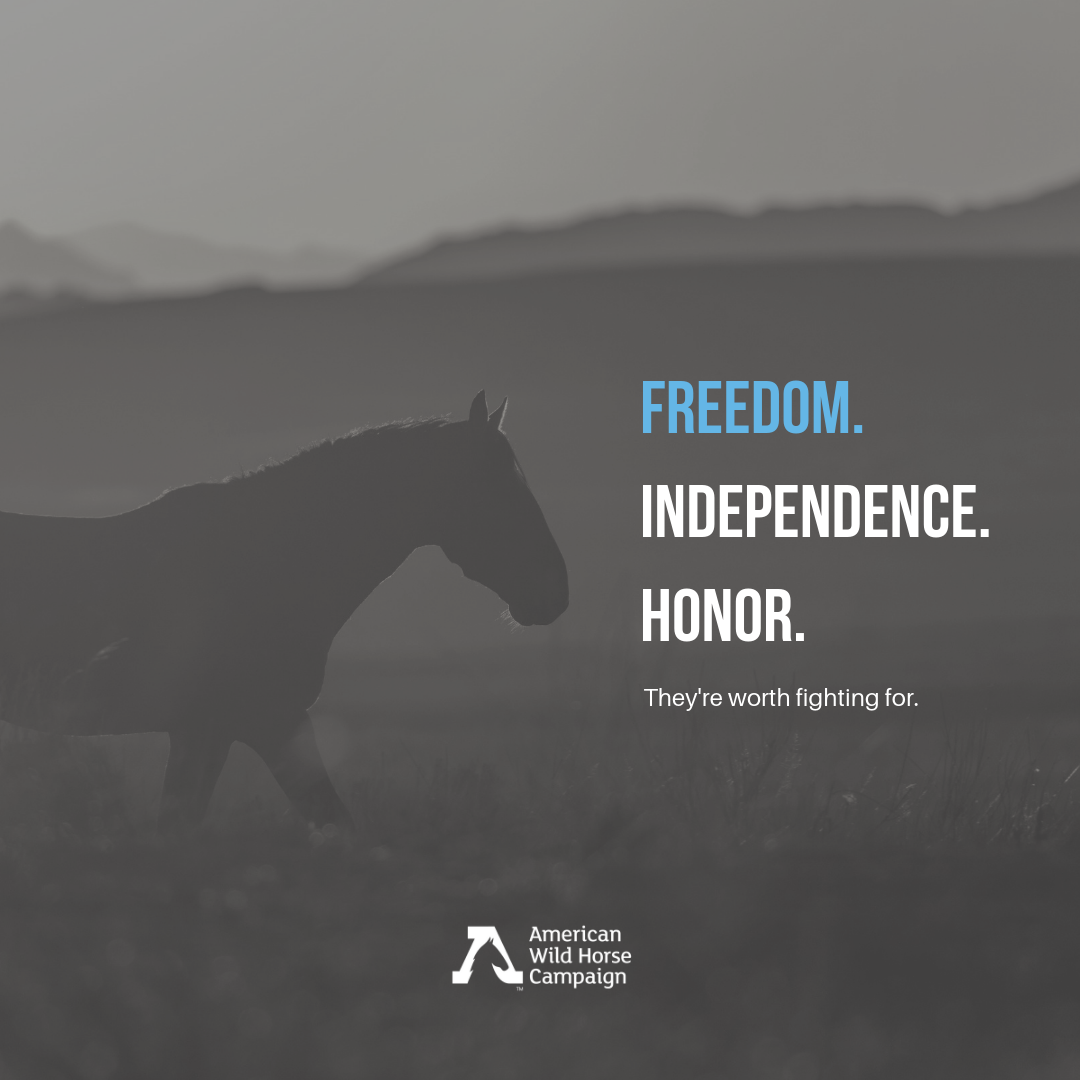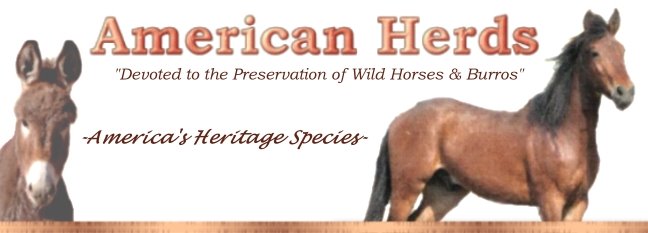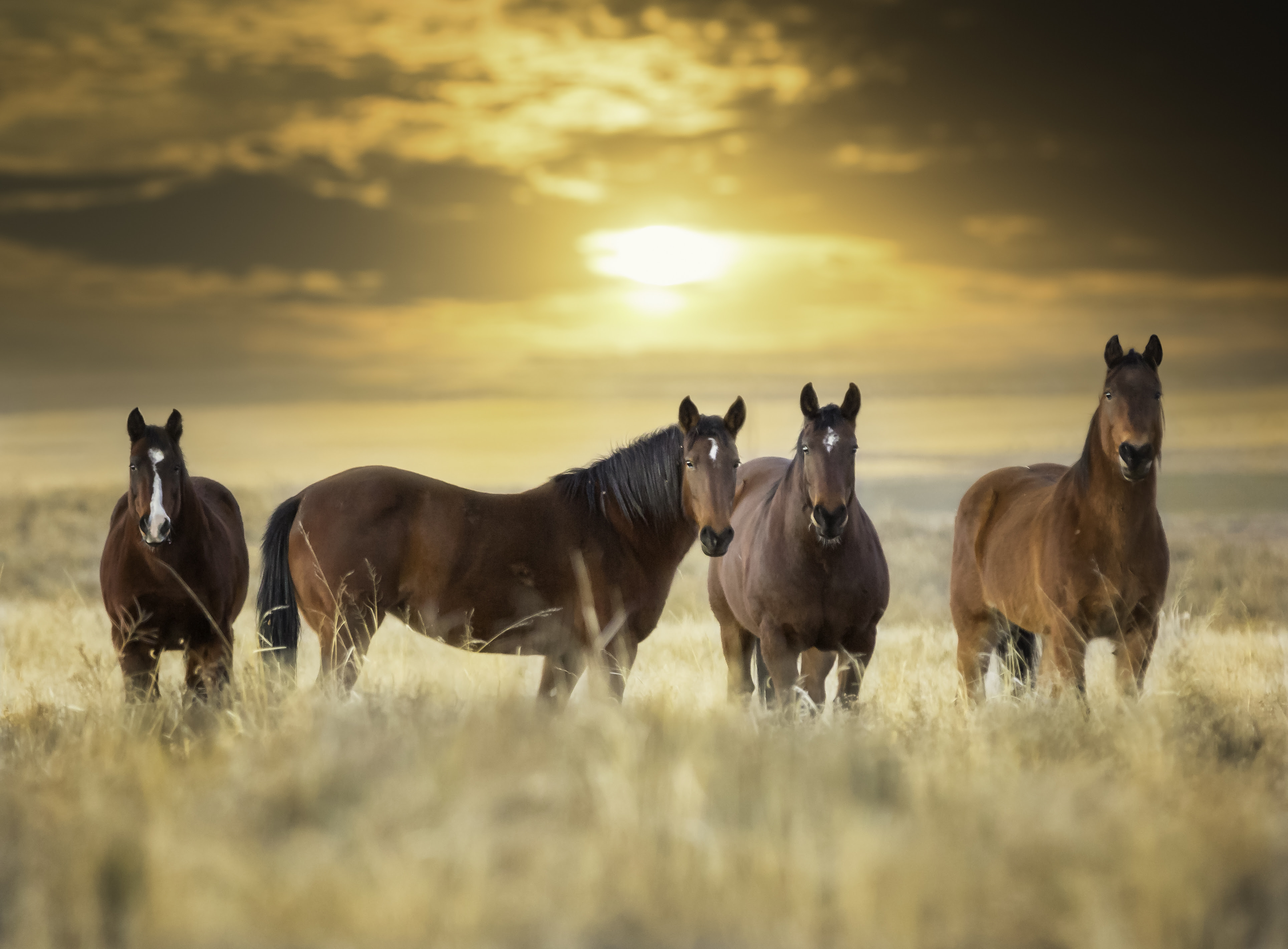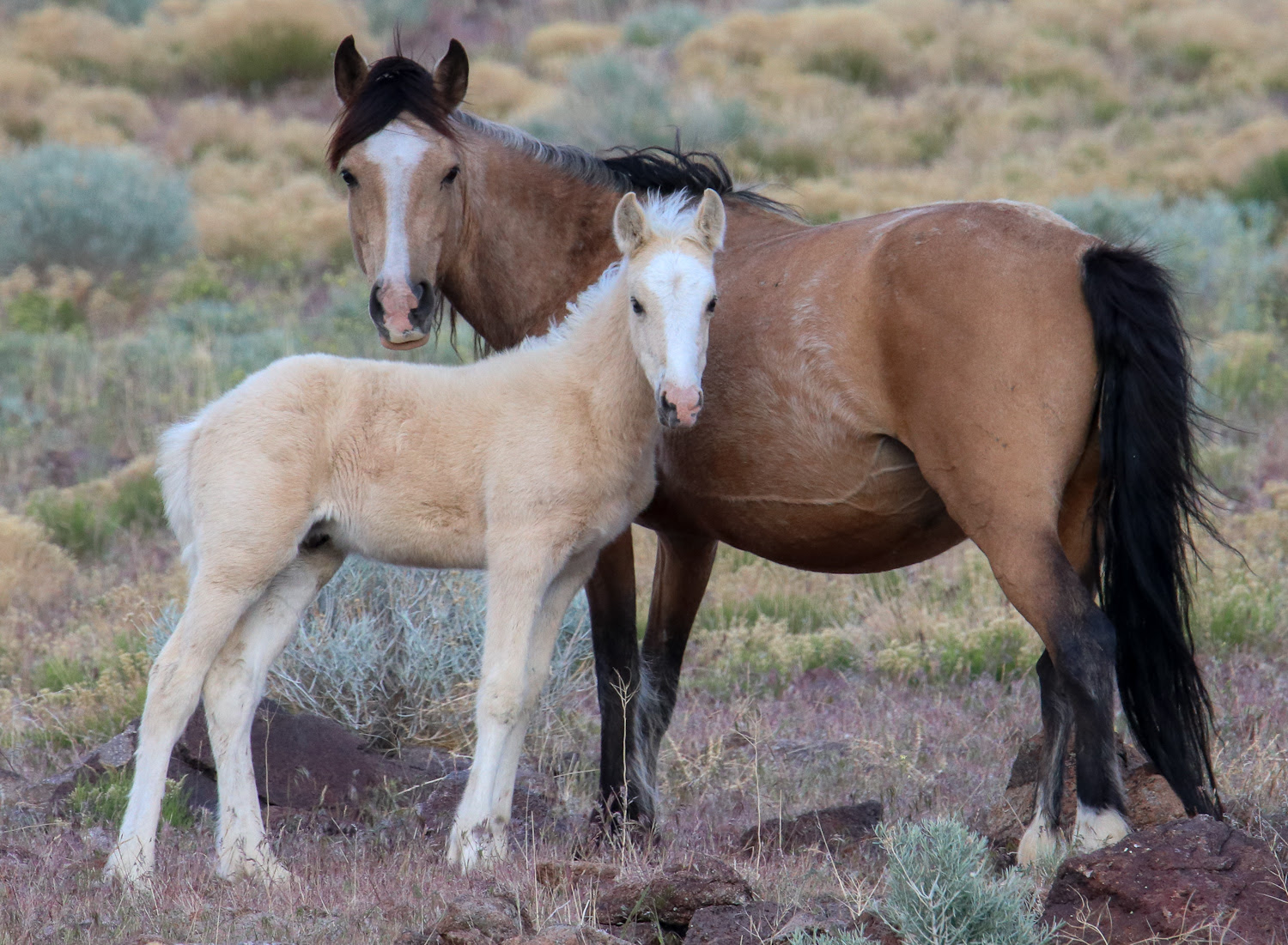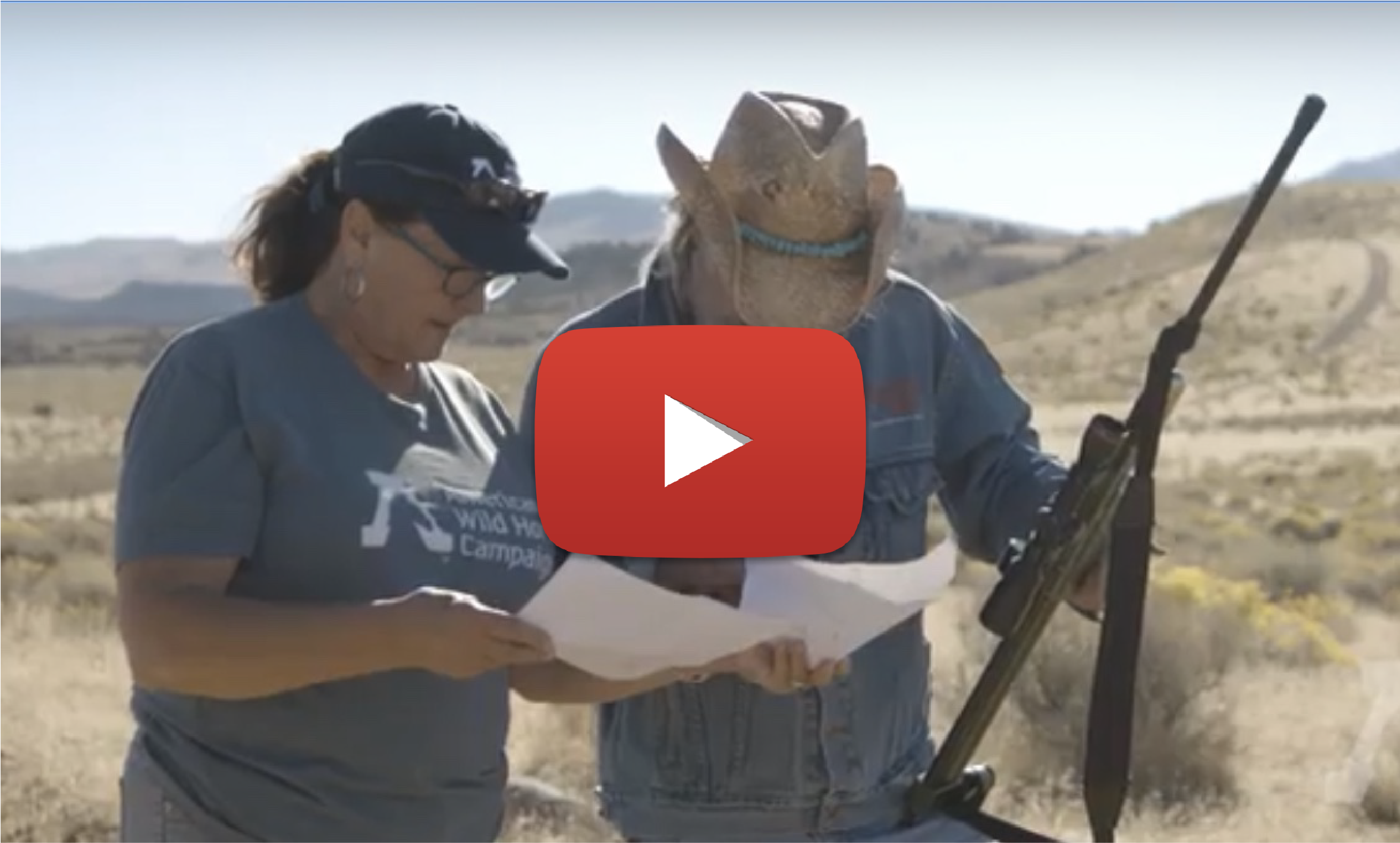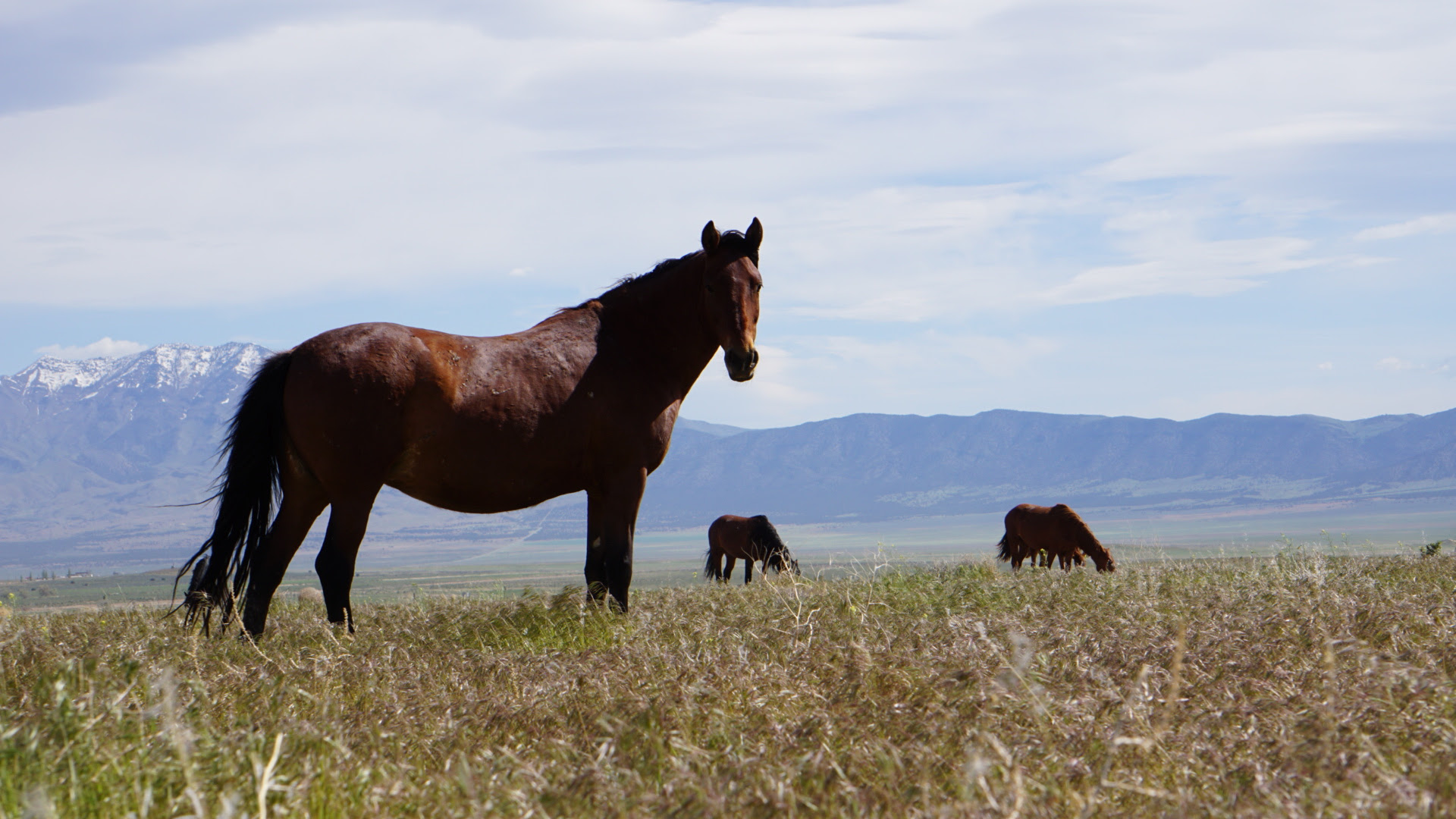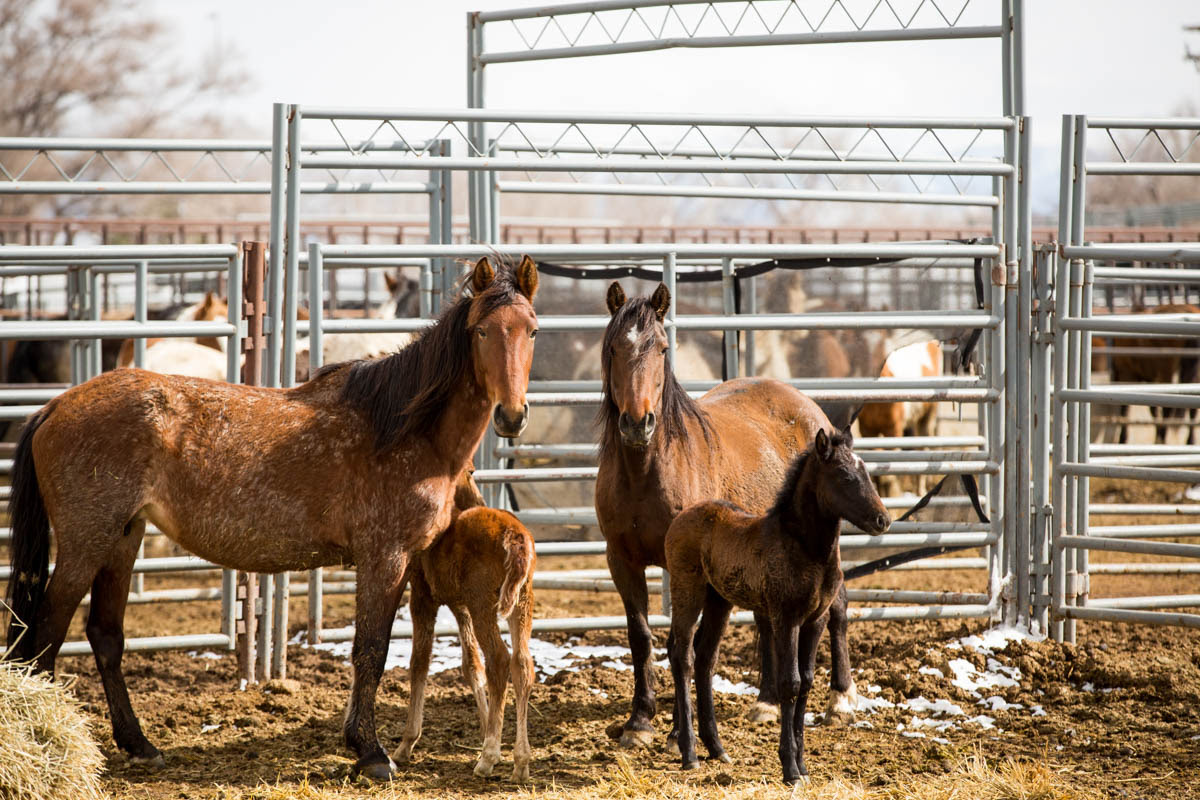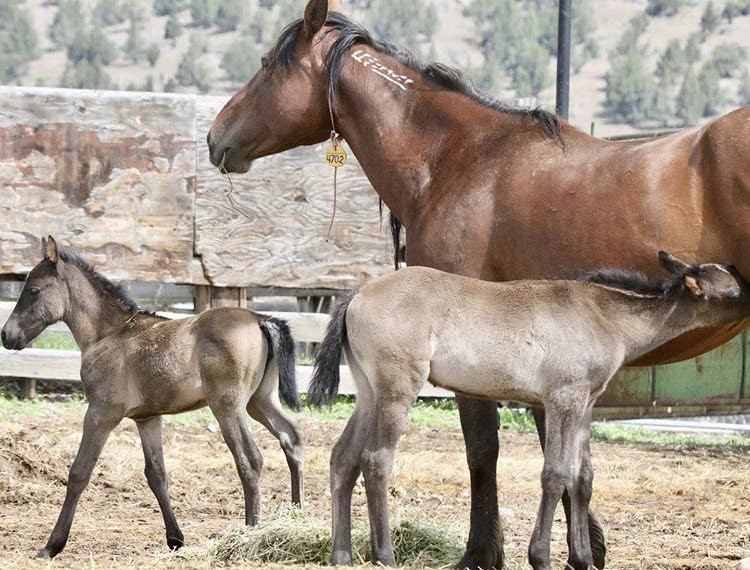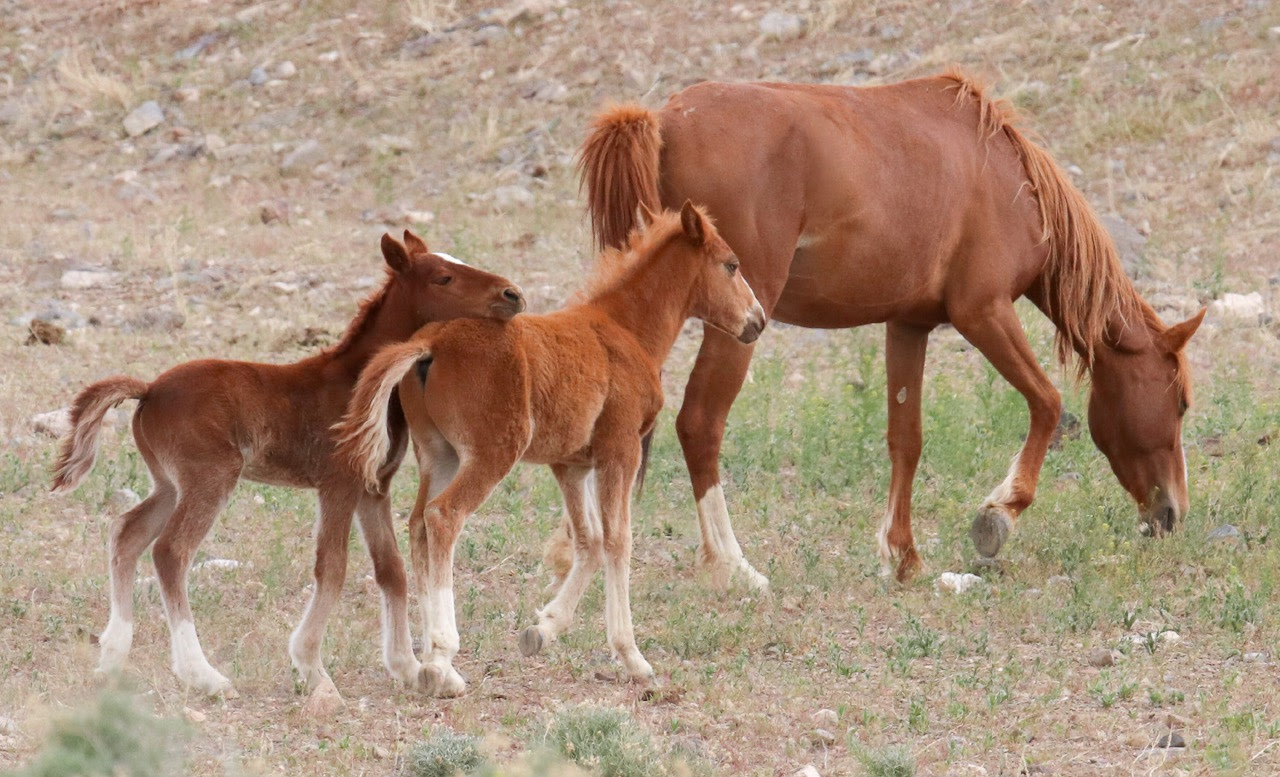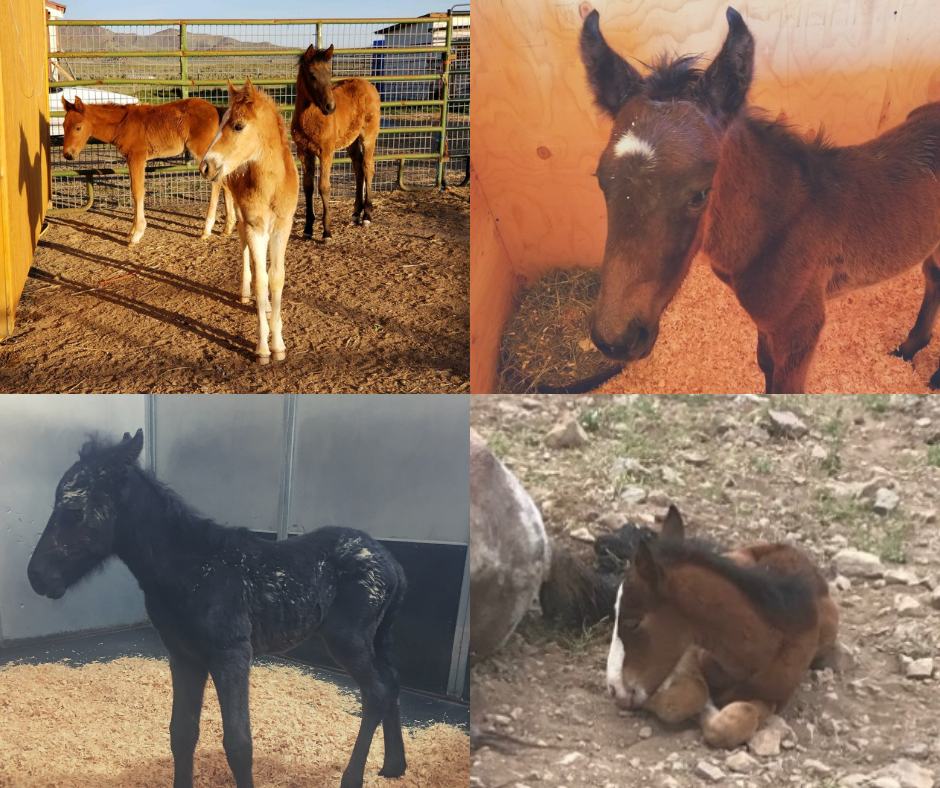Despite being THE Chief Investigative Reporter for the Las Vegas I-Team with a solid reputation earned over decades of in depth coverage and breaking news, apparently George is no match for the one, the only, the incredible, the invincible, the all knowing and all seeing Willis Lamm.
It appears Willis graciously took a few moments out to drop George a line and tell him where he went wrong, which from the sounds of it, was everywhere – at least in the World According To Willis!
Dear Mr. Lamm,
First of all, please accept my apology for taking so long to respond to your lengthy and highly detailed email of Nov. 22. I hesitate to call it an email since it is more akin to a book or term paper on wild horse management. In light of the many issues you raised, I knew I would need to carve out some time to craft an appropriate response. That said, I won’t address every single point you made because I’d probably need to take a week of vacation time to get to all of it. I’ll try to respond to the most salient points you made, along with a few glaring omissions.
After my stories aired here in LV and arrangements were made to broadcast them in Reno as well, I was warned by several wild horse enthusiasts that I would be hearing from you. They basically told me about the role you’ve assumed in the wild horse debate up north and described the type of response I would likely receive. The predictions were amazingly accurate.
To begin, let me assure you that I welcome input from all sides, especially with a story as complicated and emotional as this one. I found your letter to be both cordial and condescending, informative in many places and overtly misleading in others. I’ve been a professional journalist in Nevada for more than a quarter century, and while I appreciate your admonitions and advice, I don’t really need to be lectured about the importance of accuracy in news reporting. This is a lesson that is basically encoded in my DNA. This isn’t a hobby for me. When someone accuses me of being inaccurate or unfair or misleading, I take it very seriously. I’m sure you feel the same way.
That’s why I was so surprised by some of the things you wrote. If your mission is to set the record straight, one would think you would be more careful about some of the assertions you made. Here’s an example. Toward the end of your letter, you informed me that BLM had recently staged an adoption event ‘near Las Vegas’ in which 100 horses were placed. Really? I’ve been reporting on wild horse issues for close to 20 years. To my knowledge, there has never been an adoption event in Las Vegas that placed 100 horses. I can tell you with absolute certainty that there has been no such event in recent memory. Your statement is absolutely false.
However, I agree with your subsequent conclusion that there is a viable market in Nevada for horse adoptions. The problem is, BLM has been unwilling or unable to tap into that market, a policy decision that has prompted many to question the competency and the agendas of those who have so profoundly mismanaged this program. My personal suspicion is that the animosity which has developed between certain BLM managers and the community of wild horse advocates has degenerated to the point that it affects policy decisions within the bureau. I suspect…but cannot prove…that a few BLM managers have become so hostile toward wild horse groups and individual advocates that they actively and purposefully work to thwart successful adoption efforts in the state that is home to half of the horses still in the wild.
This brings me to another issue that is central to our exchange. Your letter focused on issues of range science, a subject that was addressed in part two of my two-part report. Did you miss part one? There is nothing whatsoever in your letter about the most important questions I raised in this series. The impetus for the two reports was the adoption program, or, more accurately, the lack thereof. I wanted to know whether BLM Nevada is managing the program as prescribed by federal law. Based on what I found, the answer is no.
It took me 7 months to obtain basic budget information. The numbers don’t lie, but I can’t say the same for BLM managers. As you know, the law which created the wild horse program provides for a management strategy which includes adoption efforts. The budget figures show that BLM Nevada commits vast resources to roundups, and considerable funds to the warehousing of horses, but very little for adoption efforts. It’s pathetic. The result is that tens of thousands of wild horses are stuck in government pens. It costs millions of dollars each year just to feed them, a bad deal for horses and a bad deal for taxpayers. When I interviewed Susie Stokke about the disparity, she was less than forthcoming, to put it mildly. She made a bad situation worse by flat-out lying to me about adoption efforts and then engaged in blatant—and transparent—attempts to manipulate the budget numbers. This isn’t a he-said-she said situation or a gray area subject to interpretation. Not even close.
I’m told that you know Ms. Stokke pretty well. There are those who think you are an agent for her, perhaps because you hope to secure a contract when certain programs are green lighted. Based on my own experiences over the years, I’d say that BLM is generous with wild horse groups that toe the line, and openly hostile with those who dare to criticize the program. I don’t know enough about you to offer a guess, but there is no question that you are widely perceived as an apologist for BLM, the person who always makes himself available to the media when the wild horse program receives criticism. You certainly wasted no time in contacting me after my stories aired, but—as mentioned above—you completely ignored the central focus of my reports, namely, the pathetic, seemingly intentional failure of BLM adoption efforts in Nevada. You don’t seem to be shy about expressing your opinions, so please feel free to give me your appraisal of the current management regarding adoptions and the blatant budget disparities. Susie thinks the program is just peachy. Do you agree? In your letter, you objected to my characterization of Nevada’s ridiculously low adoption rate. Okay, let’s hear how you would characterize it? Is it a success? You criticized my statement about the ‘rate of adoption’ by asserting that Nevada ranks 14th in total numbers of adoptions. Comparing rates versus total numbers? Come on. Are you serious?
Several times in your letter, you disparage those wild horse advocates who disagree with you while bragging about your own lofty status as a wild horse authority. Can you please elaborate. Did you work for the program prior to moving here? Do you have a degree in animal husbandry or range science? What is your level of expertise? One reason for the questions is your claimed status as the voice of reason in the wild horse debate. You say ‘most of the mainstream media’ have low regard for ‘the lunatic fringe’, meaning, horse advocates who don’t agree with your view. You seem to be saying that you are credible and everyone else isn’t. If this is how the news people in Reno see things, shame on them. No one has a monopoly on the truth, and no one is the ultimate authority on these issues. There are many viewpoints which deserve to be heard. Just because someone disagrees with you doesn’t mean they are lunatics and it seems incredibly egotistical for anyone to assume the position as the supreme arbiter of all questions about wild horses. This is the U.S.A., after all. It’s our duty as citizens to get involved and to speak up. No offense meant, but you didn’t invent wild horses. You aren’t the arbiter of truth. You’re one guy, not THE guy. There are many honest and compassionate people who’ve been working with wild horses far longer than you, and they happen to see things differently. When you refer to them as lunatics or “The Hysteria Corps”, it says a lot more about you than it does about them.
I see from your letter that you filed the paperwork to create a non-profit group and then you helped to form another umbrella organization. That’s admirable, but the formation of a 501c3 doesn’t make you an expert. The IRS doesn’t require a competency exam when it approves non-profits. You say your volunteers are out in the field every day, studying the range conditions, gathering info. That’s awesome, but what happens to the data? Do you give it to the BLM? Honestly, in all the years of reading BLM documents and public filings, I’ve never seen any reference to you or your group. You mentioned that your daughter is a DVM, that she reviews your observations and concurs with your conclusions. No offense to your family, but there isn’t a scientific organization in the world that would ask a daughter to do a peer review of her dad’s research. What’s she going to say? Hey Pop, you’re a nitwit? More pointedly, what does she review? What happens to this information? Where does it go? If the primary purpose of this research effort is to buttress your position as the ultimate authority on all wild horse issues, then I have many other questions about your goals, plans, and motives. The inference might seem unfair, but if you look at this from my vantage point, I hope you can see why I would ask.
A couple of other items deserve a response. You objected to the title of one of my stories because it mentioned “the science behind BLM roundups.” You say the story itself isn’t based on science. Can I get an amen? This is what we in the journalism biz refer to as irony. The entire point of the report was that there is very little science involved in BLM decisions to gather horses. I interviewed Craig Downer, who not only grew up with wild horses in his backyard, but earned advanced degrees and was employed as a range scientist by BLM. He quit in disgust because he knows the decisions to round up the horses very often have nothing to do with science and little to do with the health of the range. If you have expert testimony from someone who is MORE qualified than Craig Downer, I’d like to see it. BLM is rounding up horses for reasons that have little, if anything, to do with science.
You stated that my information about the Jackson Mountains roundup is ‘misleading’. As noted, the exact line was that the roundup was authorized ‘supposedly because there wasn’t enough forage to support them.” You say the problem was lack of water, not forage and that your team saw ‘thousands of acres of grass’ in the area. That is very interesting information. I hope you will pass it along to your colleague Ms. Stokke because the information she has directly contradicts yours. In our on camera interview, Ms. Stokke told us the horses were starving, that they barely survived by ‘eating brush’, and that this is the reason BLM rounded them up. (A side issue–If the problem was lack of water, I’m curious to know what role BLM played in cutting the horses off from their water sources.) I also hope the two of you can resolve your differences over whether the horses were starving or dying of thirst…or maybe it was both. If you think my information was misleading, you might want to go to the source and tell her that she’s full of baloney. Let me know how that goes.
There’s another reason why the forage-or-water issue is relevant. I questioned Ms. Stokke about why all of the horses dropped dead at Palomino Valley. She told me—again, on camera—that the horses had been surviving by eating brush and that when they were fed rich hay at PV, it caused an inflammation of the salmonella already in their systems and they died. I reported it exactly as it was told to me by BLM, that the animals already had salmonella in their systems and they started dying because of the feed they received. In your letter, you said this was FALSE, in capital letters, ‘so patently false that it boggles the minds of those who understand these issues.’ By that, I guess you mean that Susie Stokke doesn’t understand these issues. I’m glad we agree on something.
You also expressed the opinion that the horses ‘were properly handled’ at PV, that they were fed grass hay because that’s what ‘any experienced veterinarian’ would recommend, and that the stories about horses dying because of their feed were ‘rumors.’ Well, maybe you’re right. Maybe everything was done by the book and, as Susie said, the horses got the best care possible. Then again, they’re dead. They keeled over dead, dozens at a time, but I’m sure they were grateful for the great care they received. Are you telling me there was no alternative to this, no other approach that could have been taken, no way to ease them into a different diet? Really? If, as you suggest, they were dying already, then why go to the trouble of rounding them up and bringing them in? On the open range, they were alive. In the corral, they were dead. I guess it’s just one of those things.
One final bone of contention. You went into considerable detail about the impact of cattle and sheep on the range versus the impact of horses. I’m not even going to try to hassle about all of the specifics except for this central point. If you are suggesting that the plight of wild horses is not directly related to the competition for resources posed by cows and sheep…and housing developers…and oil companies….and mining conglomerates, then I don’t see any reason to continue the dialogue. There’s always a reason to remove horses (and the ‘best’ reason is that it’s for their own good), but when it comes to competing uses for public lands, the horses always seem to rank at the bottom of the list. Always. Anyone who thinks the ambitious, revved up removal program is unrelated to the influence of cattle interests with the current administration is not being honest.
The program is a mess, an embarrassment. The people who are calling the shots in Nevada should be ashamed. Putting resources into adoption efforts makes even more sense now that the roundups are so relentless, but it isn’t happening for reasons that have little to do with logic or good public policy.
I don’t know you, but I know OF you. I don’t like some of the things you say, not because I disagree with your conclusions but because, by personal decree, you assume the mantle of authority on all things related to wild horses. You informed me that mainstream media in your neck of the woods consider you to be the go-to guy for wild horse questions. Well, I’m not them. If you want a dialogue, that’s fine with me. But I’m not someone who is particularly impressed by posturing or intimidation tactics. As for the invitation to join your team sometime out on the range, if you’re still willing, I might take you up on that.
George Knapp
KLAS TV



